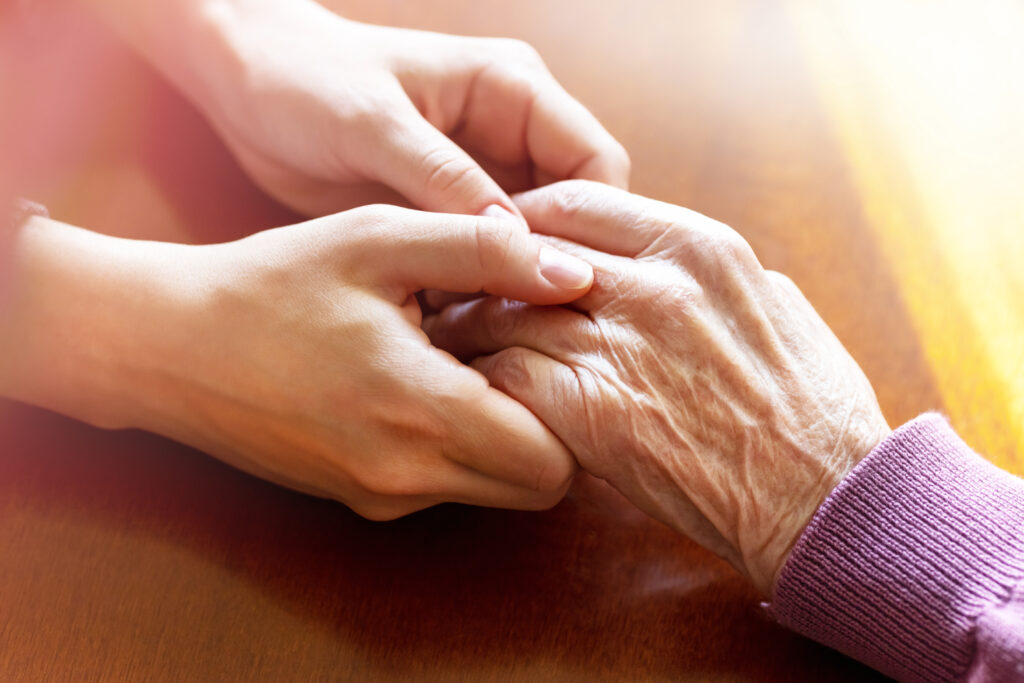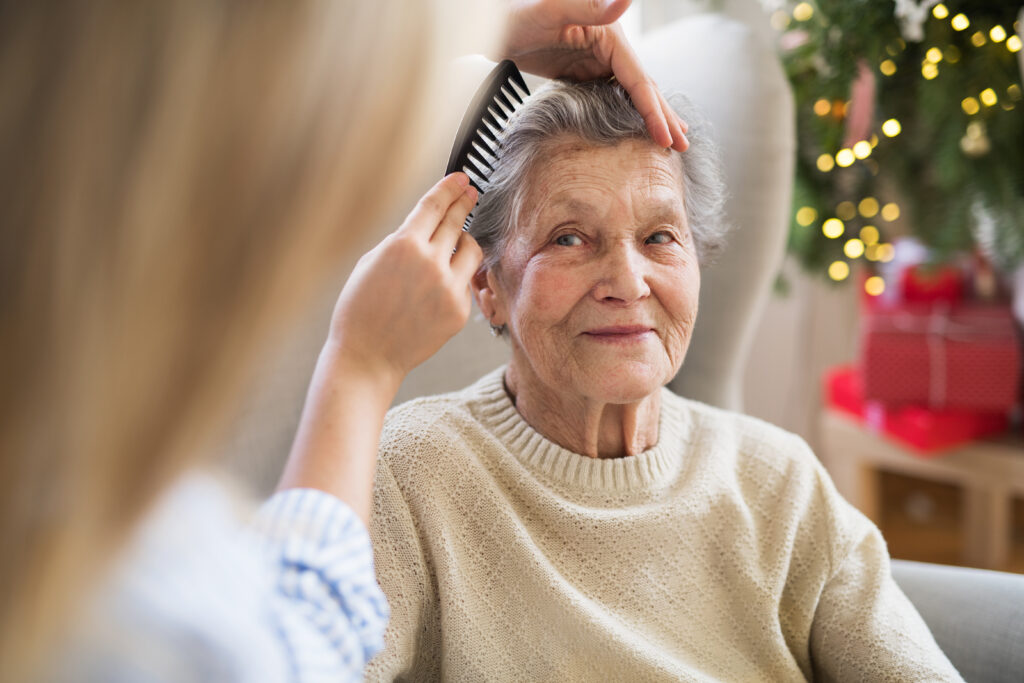Home Care in Delaware: Common Terms, How to pay for Home Care, Licensing and Questions to ask
As we age, many individuals will require care at some point; however, while people typically envision nursing homes when thinking of senior care, they have many more options for caring for a loved one who might need assistance. In fact, home care in Delaware specifically serves aging adults who need only basic assistance at home without medical help. Moreover, living in Delaware supports this type of care and offers a unique blend of charm, convenience, and accessibility, making it an attractive place to call home.
For instance, the state boasts beautiful coastal areas, vibrant urban centers, and serene countryside, providing residents with a variety of recreational options such as relaxing on the beach or enjoying scenic hiking trails. Additionally, Delaware’s tax-friendly environment, which includes no sales tax, makes it financially appealing for both families and retirees. Furthermore, the state hosts several top-notch educational institutions and maintains a robust job market, particularly in sectors such as healthcare, finance, and technology.
In addition, Delaware’s strategic location between major cities like Philadelphia, Baltimore, and Washington, D.C., enables easy access to urban amenities while allowing residents to enjoy a peaceful suburban lifestyle. Ultimately, with its rich history, welcoming communities, and diverse cultural experiences, Delaware provides a high quality of life that attracts people from all walks of life, making it an ideal choice for both home care in Delaware and a vibrant living environment.
Home Care may also called In Home Care
Home care, also known as in-home care, serves seniors who need only basic non-medical assistance at home. Additionally, home aides actively support activities of daily living (ADLs), which include providing medication reminders, assisting with bathing, and helping with eating, among other important tasks. Furthermore, home care offers an excellent option for family members who must leave town or simply need a break from caring for their loved ones. Importantly, home care aides create a personalized experience by offering companionship, socialization, and a vital sense of connection.
When considering home care and aging in place, these services include assistance with activities of daily living (ADLs). In fact, these in-home aides may provide personal care and monitoring similar to the services offered in a long-term care community, all while allowing individuals to remain in the comfort of their own homes. Consequently, this arrangement promotes independence and enhances the quality of life for seniors.
How do you know it may be time for care at Home?
What Are the Signs to Look For?
Have you noticed that your loved one spends less and less time managing their hygiene or personal appearance? For instance, they may stop brushing their teeth or allow their facial hair to grow in an unkempt fashion when they used to maintain it. Additionally, are they going for longer periods in the same clothing or neglecting their previously scheduled eating habits? Grooming and hygiene fall under the umbrella of activities of daily living (ADLs), so a personal care assistant can help with these important tasks.
Do you find that your loved one forgets things more frequently? Typically, people forget things occasionally; however, if you notice they are forgetting simple tasks they normally perform regularly, this may indicate that they need assistance.
Moreover, elderly adults often experience trouble walking, getting up from a seated position, or needing help getting in and out of bed. These signs can indeed be dangerous. As mobility declines, the risk of a fall increases. Therefore, a home care aide can assist them with moving around the house safely.
Lastly, did you notice that your loved one’s home appears in disarray? If they have usually kept their home tidy or clean, yet now the home looks disheveled and dirty, this could indicate a need for assistance. In-home aides can help with normal household maintenance tasks, such as dusting and sweeping, cleaning the kitchen, or doing laundry.
What Assistance do In-Home Care Aides Provide?
Home Care Aides provide a variety of services and assistance tailored to individual needs. Specifically, depending on the individual’s condition, elderly adults may require different types of care.
Medication Management
Furthermore, caregivers in Delaware may not administer medications themselves. Additionally, these caregivers are not permitted to make any decisions regarding medications for patients. Instead, they can help ensure that patients understand their medication schedules and remind them when it is time to take their medications. As a result, caregivers play a crucial role in supporting medication management while adhering to state regulations.
Services included in home care:
- Companionship
- Socialization
- Cognitive stimulation
- Medication reminders
- Grocery shopping
- Transportation
- Respite for family caregivers

Often times, people think of nursing homes or retirement homes as the only places for senior care. As we’ve discussed earlier, there are multiple care options. And even within home care, there are levels of care suited for an individuals needs. The specific services offered in home care will vary state by state.
What are the different options?
Personal Care Assistant
- A personal care assistant provides companionship as well as assistance with activities of daily living (ADLs), which include non-medical personal care tasks such as toileting, dressing, grooming, and bathing.
- Additionally, they can help with grocery shopping and meal preparation, ensuring that the individual maintains a balanced diet.
- Moreover, a personal care assistant can help alleviate family difficulties. For instance, if a family caregiver must leave town or be away from home overnight, the caregiver can stay with the individual and monitor their well-being while assisting as needed.
- Furthermore, if a spouse is too heavy for the individual to manage safely, a personal assistant can be an invaluable asset in helping the individual move without risking injury.
- However, it is important to note that these care assistants cannot perform any medical care, as their primary focus is on providing non-medical support.
Companion Care
- Companion care involves companions who spend quality time with older adults. Providing companionship is especially relevant for individuals who live alone or do not leave the house due to cognitive impairments or frailty.
- In this role, these companions are there to look after the person, keep a watchful eye, and act as an extension of the individual to assist with mobility and general physical functions.
- Additionally, they may drive the person to appointments and prepare light meals and snacks. Furthermore, they may engage in enjoyable activities such as playing games, reading together, or listening to music, which enhance the overall experience.
- Ultimately, companion care serves as an effective way to bring social interaction and assistance to a person who may otherwise spend long periods of time alone. Thus, this type of care significantly improves the quality of life for seniors.


Laws and Regulations
Licensing
Home care agencies in Delaware are licensed and overseen by the Department of Health and Social Services, which ensures compliance with state regulations.
Care Plans
Before anything else, agencies must provide a detailed list of the services they offer and the fees that are charged. Additionally, patients in Delaware may either provide their own treatment plans or actively participate in the creation of the plan with their agency, thereby fostering a collaborative approach to their care.
Staffing
To ensure safety and accountability, criminal background checks are required for all potential employees. In addition, home health aides must have at least one year of practical experience. Furthermore, they are required to complete a home health aide course, which equips them with the necessary skills to provide quality care.
Grievances
Any suspected abuse must be reported immediately to the State Department of Health to protect vulnerable individuals. Furthermore, the individual under care has the right to file a complaint with the agency regarding several important issues:
- Their treatment and the care provided.
- The agency’s failure to deliver certain necessary care.
- The lack of respect for their property and/or person.
Moreover, individuals have the right to participate in discussions about their care, be informed about their treatment options, and consent to or refuse care both in advance of and during treatment. Collectively, these rights empower individuals and ensure they receive the quality care they deserve.
How much does is cost?
The cost of home care in Delaware is above the national average in monthly cost.
National average cost of home care per month: $5,000
Delaware: $5,350
Delaware sits about the middle of cost compared with neighboring states.
Questions and inquiries about home care
Agency Information
- Is the agency RN operated?
- Is the agency a franchise or locally owned and operated?
- Is the agency licensed by WA State Department of Health?
- Is the agency licensed for both home care and home health?
- Does the agency have liability insurance?
- Can the agency respond to you 24/7?
Caregiver Information
- Are employees licensed, bonded & insured? Or are they independent contractors?
- Does the agency test skills, conduct behavioral interviews and verify caregiver credentials?
- Are caregivers required to have current certifications for First Aid, CPR, and TB?
- Are caregivers provided continuing education/training?
- Can authorized individuals monitor care and make requests online in real time?
- Does the agency offer caregiver replacement when the “fit” may not be right?
Documentation and Supervision
- Does an RN/MSW/Care Manager conduct a free home care assessment?
- Does an RN/MSW/Care Manager create a home care plan?
- Does an RN/MSW/Care Manager supervise the caregivers?
- Do caregivers receive client orientation before arriving at a client’s home?
Policies and Cost
- Can services be cancelled with a 4-hour notification?
- Does the agency offer flexible scheduling, custom care plans, and a continuum of care?
- Does the agency have weekly or monthly minimums?
- What is the hourly minimum per shift?
- Does the agency offer home care discounts?
- What is the required deposit?
- Will the agency accept long-term care insurance?
Resources and Links for Home Health, Home Care and Hospice
Eldercare Locator is a nationwide service that connects older Americans and their caregivers with trustworthy local support resources. Connect with services such as meals, home care or transportation, or a caregiver education or respite from caregiving responsibilities. The Eldercare Locator is a public service of the Administration on Aging (AoA), an agency of the U.S. Administration for Community Living.
Medicare provides a search feature to find & compare providers near you, most senior housing and care providers are included on CareAvailability.com. Find & compare plans in your area. Determine if you qualify for premium savings.
Medicaid offers information on how to apply for Medicaid, eligibility criteria, links to local state offices, and additional resources.
The Alzheimer’s Association is the leading voluntary health organization in Alzheimer’s care, support and research. Whether you are living with Alzheimer’s or caring for someone with the disease, information and resources are available.
Hospice Foundation of America is to provide leadership in the development and application of hospice and its philosophy of care with the goal of enhancing the U.S. health care system and the role of hospice within it.
National Association for Home Care & Hospice is a trade association that represents the nation’s 33,000 home care and hospice organizations and the caregivers who provide in-home health and hospice services.
Search other areas for Home Care
Not finding what you’re looking for? Take a look below.
